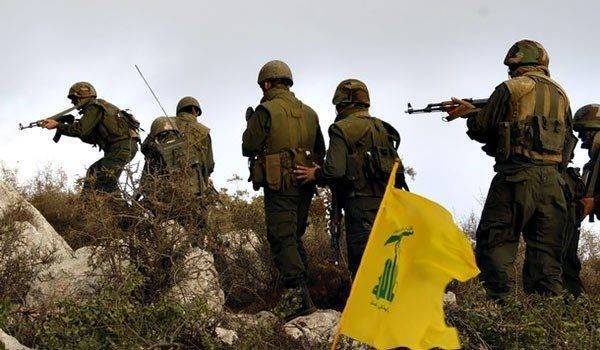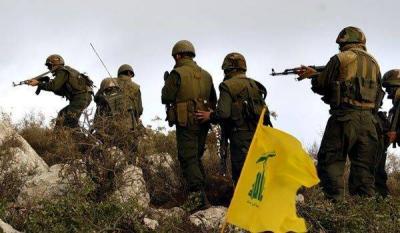The predicament that Hezbollah has been suffering since its involvement in the “support and diversion war” through southern Lebanon 160 days ago does not require further proof, both in form and content, as presented by Mr. Hassan Nasrallah, perhaps unintentionally, in his latest speech. The tone of the speech did not elevate to the high-pitched, dramatic rhetoric he is typically known for, nor did its contents convince his followers or opponents, especially when he dedicated the majority of his arguments to responding to critics of his entanglement in an aimless and futile war, or relying on what the Israelis conceal and what they announce as testimonies and constants worthy of building on to declare an assured albeit postponed defeat for Israel, in his estimation.
The comparison he made between the losses of the southerners and Israeli losses was neither successful nor convincing, as if this minimization of the southern catastrophe, along with other areas subjected to bombings, compared to the magnitude of the Israeli catastrophe, would suffice to soothe the suffering of the displaced and the wounds of those who have lost their livelihoods and lives. In conclusion, his speech offered nothing but a call for his environment to be patient and endure, waiting for a timeframe to move toward an unclear horizon that he could not clarify, leaving it hanging in ambiguity concerning the path and destiny.
However, the significant flaw in Nasrallah's approach to the war and its costs transcends these media justifications, reaching the core of the confrontation, as he relied on the argument of comparison with the Israeli predicament. Israel is conducting its war north and south with clear target banks according to its strategic plan, whether to eliminate Hamas or to distance the Hezbollah threat from its northern settlements, showing little concern for the pressures attempting to deter it, even while facing a sharp disagreement with the White House, its main ally and protector. In contrast, the goals of Hezbollah and its Iranian reference remain shrouded in ambiguity, cloaked under the rigid title of “supporting Gaza,” oscillating between reaction rather than action, with the addition of a recent title that is no less rigid: “deterring the potential Israeli attack.”
Prior to the “Al-Aqsa Flood” operation on October 7, Iran's objectives and its primary arm were “to remove Israel from existence,” with an accumulation of slogans and operational execution, like invading Galilee, and equations for “after” Haifa and Tel Aviv against the suburbs, from Kiryat Shmona to Eilat, as well as advancing toward Jerusalem. They missed a rare opportunity to exploit the exceptional operation carried out by Hamas, and to strike at northern Israel, which is now confused and shocked after the turmoil in the south. They have now reached a stage of abandoning those slogans and downgraded their objectives to mere “diversion” and adherence to “rules of engagement,” content with localized responses that hold no strategic value or transformative impact.
This bewilderment in ignorance of the “next day” and the determination of war goals and strategy through southern Lebanon is coupled with a similar political confusion regarding internal Lebanese peace, especially concerning the presidential file and the nature of relations with various components. Under the once-hidden connection between the files of the south (and Gaza) and the presidency, the vague and unknown objectives blend together, leading to silence and confusion in responding to the initiative of the “National Moderation Bloc” and entrusting President Berri with the task of containing or even aborting this initiative, along with the prior containment of the movement of the ambassadors of the Arab International Quintet converging on the known middle-ground solution referred to as “the third option.”
It has become clear that the emergency condition imposed by Berri, by personally chairing meetings for dialogue or consultation among blocs and MPs, contrary to his previous stance, has returned the presidential file to its primary blockage square, opening the door for promoting the impossibility of a breakthrough, burning names and chances, even as a breeze of optimism blew last week amidst the new spirit in the political atmospheres of Ramadan Iftars and the resuming of the actions of the five ambassadors with political authorities.
Is there anyone capable of correcting the aim by liberating Hezbollah and the “Duo” from the crisis of losing the compass of war in the south and the compass of politics at home? Perhaps the only one able to adjust the two compasses and calibrate the objectives, leading out of a state of ignorance towards a unified solution compass for Lebanon, is the convergence between the “Quintet” and Iran, specifically between Washington and Tehran, who are simultaneously drawing pressures and negotiations without contradicting the overwhelming Lebanese will to reject both aspects: the rejection of the futile war with its unclear objectives, its lost steps, and its ambiguous future, and the rejection of the political “grace” to those returning from this war under the pretext of some hypothetical Iranian-Israeli deal blessed by American-French approval, as a political appeasement for “the Party” in return for its military retreat.
Beneath these two national rejections transcending blocs, parties, and sects lies the Lebanese political solution, to avoid further causes for division and factors for fragmentation and collapse.




